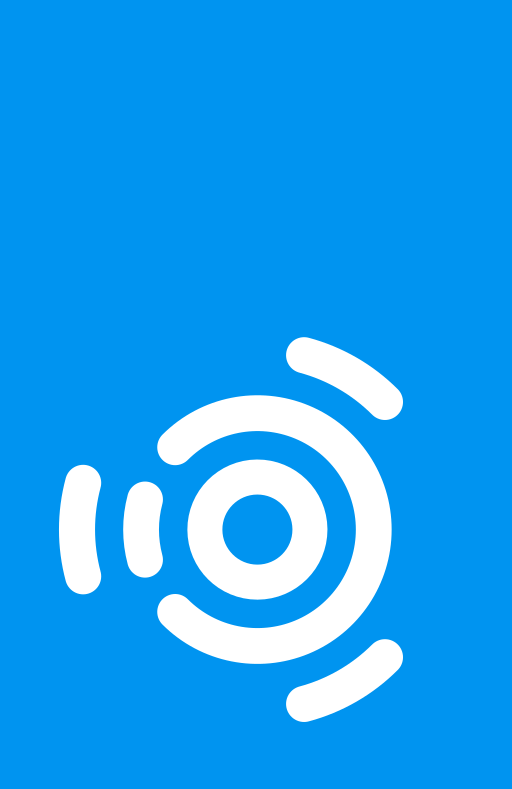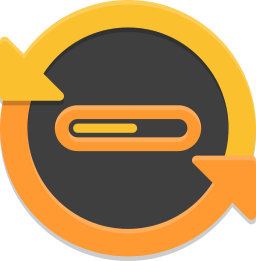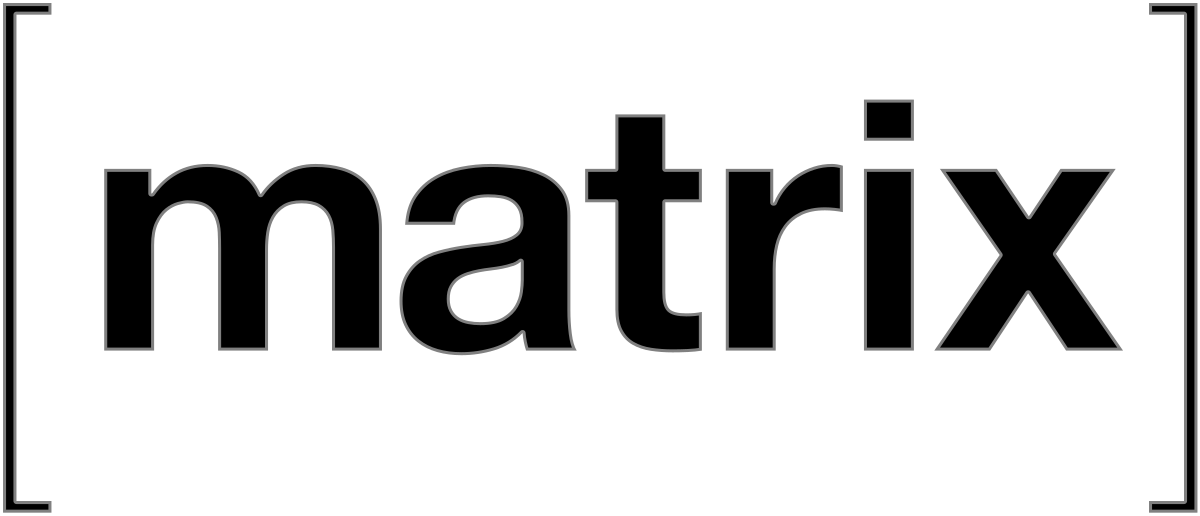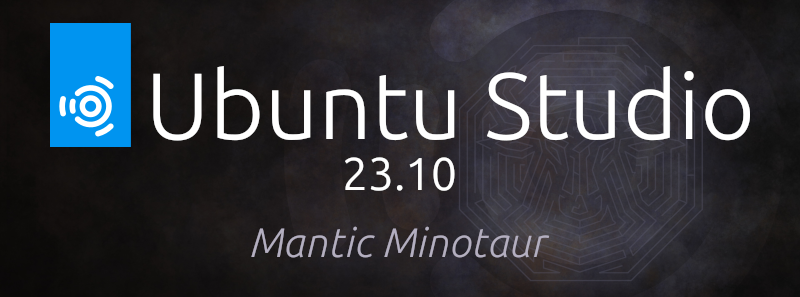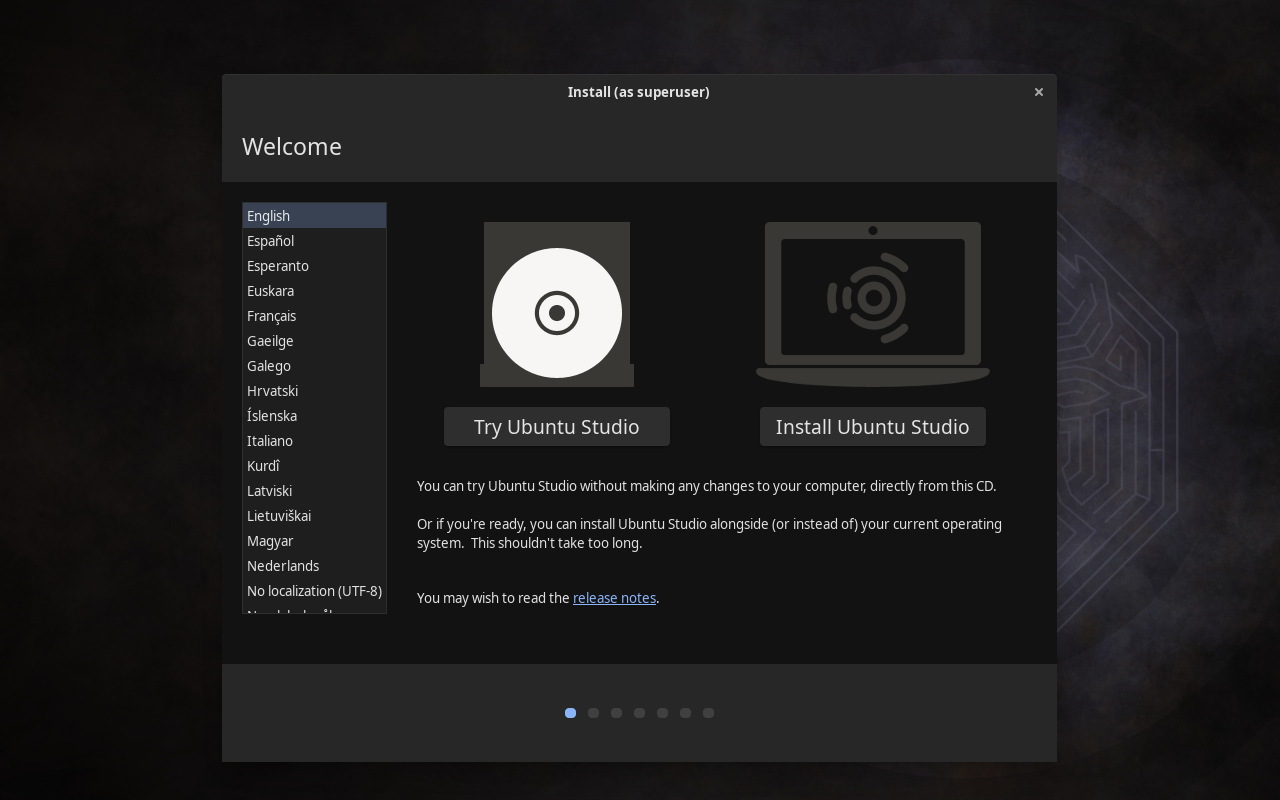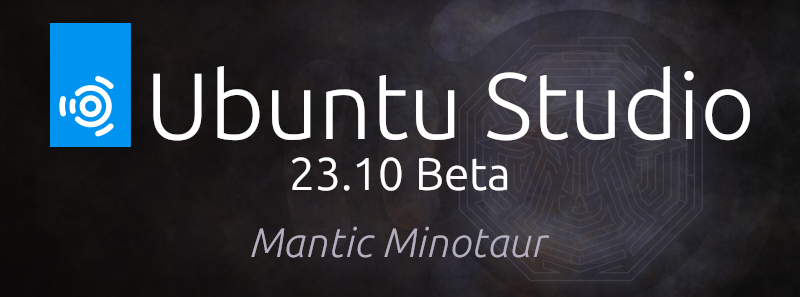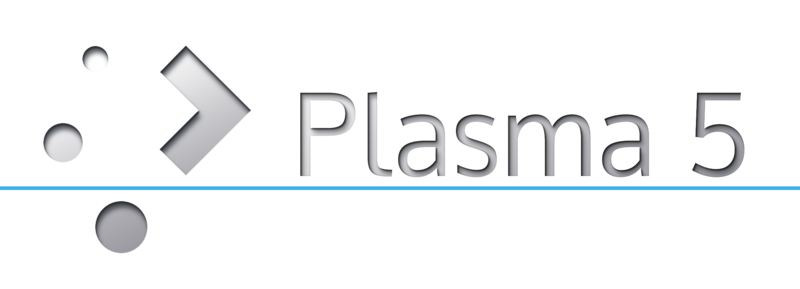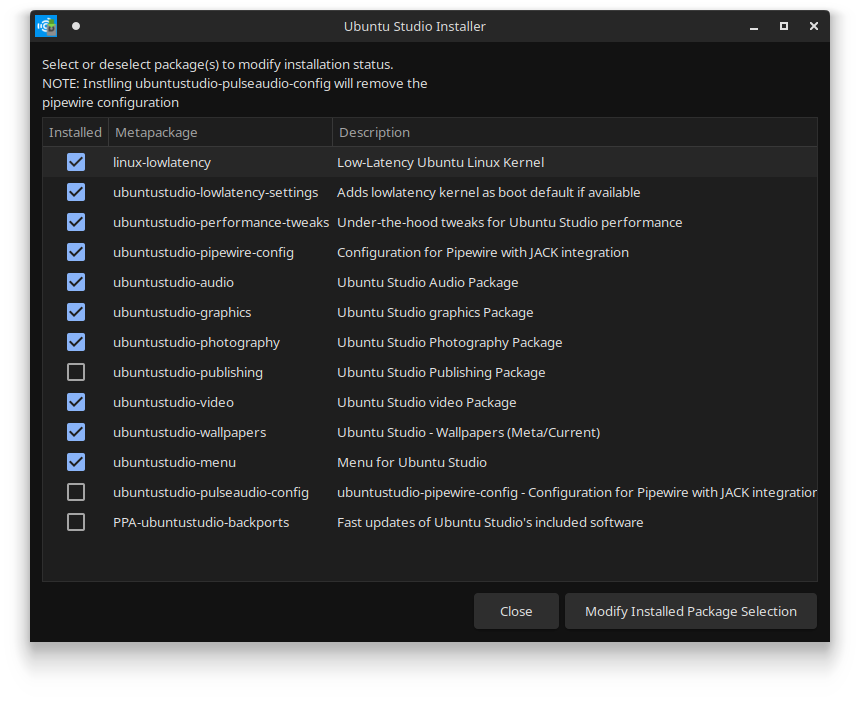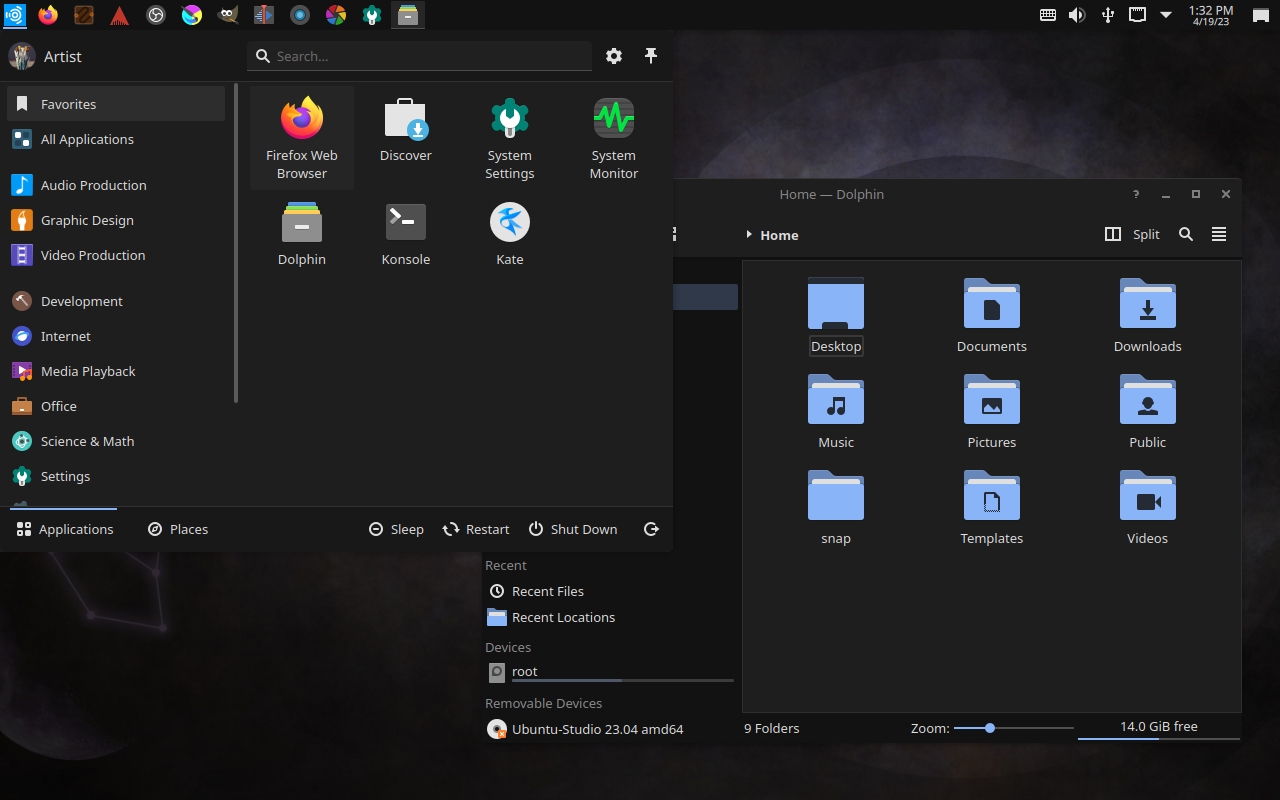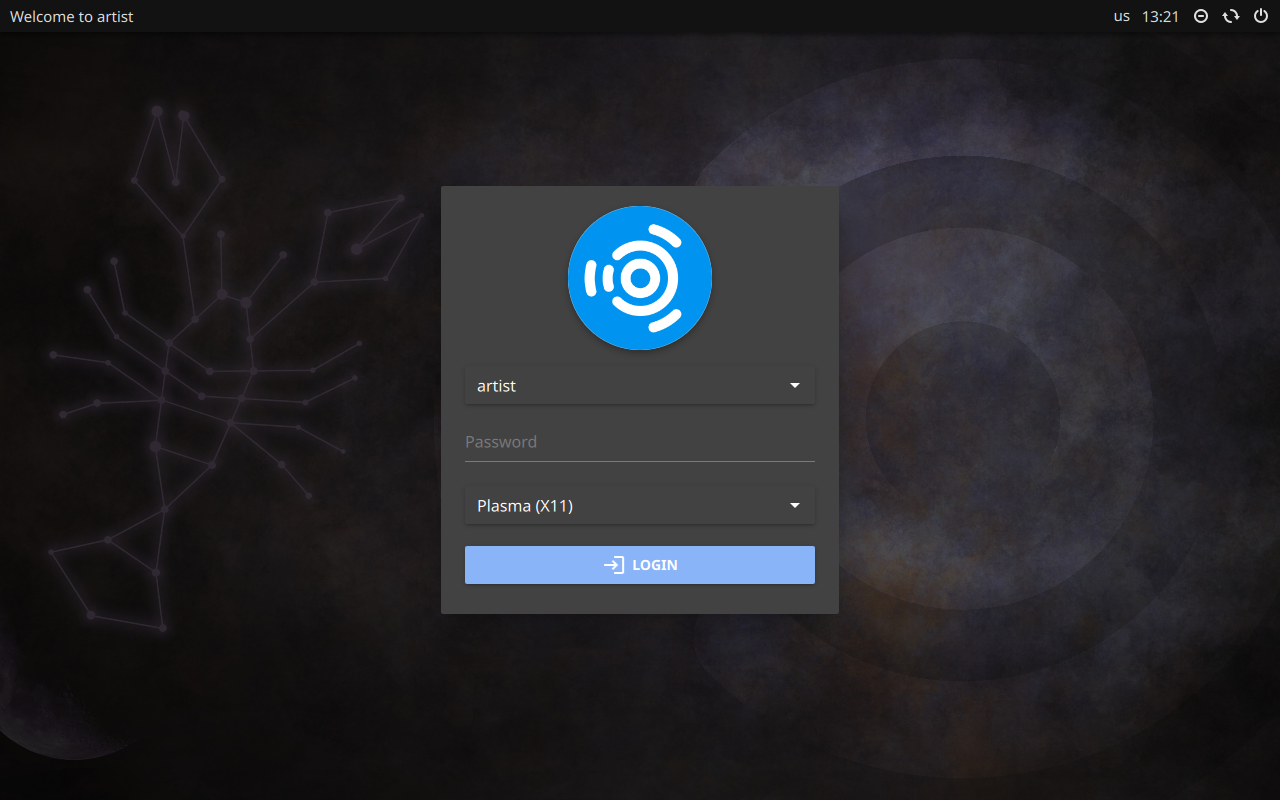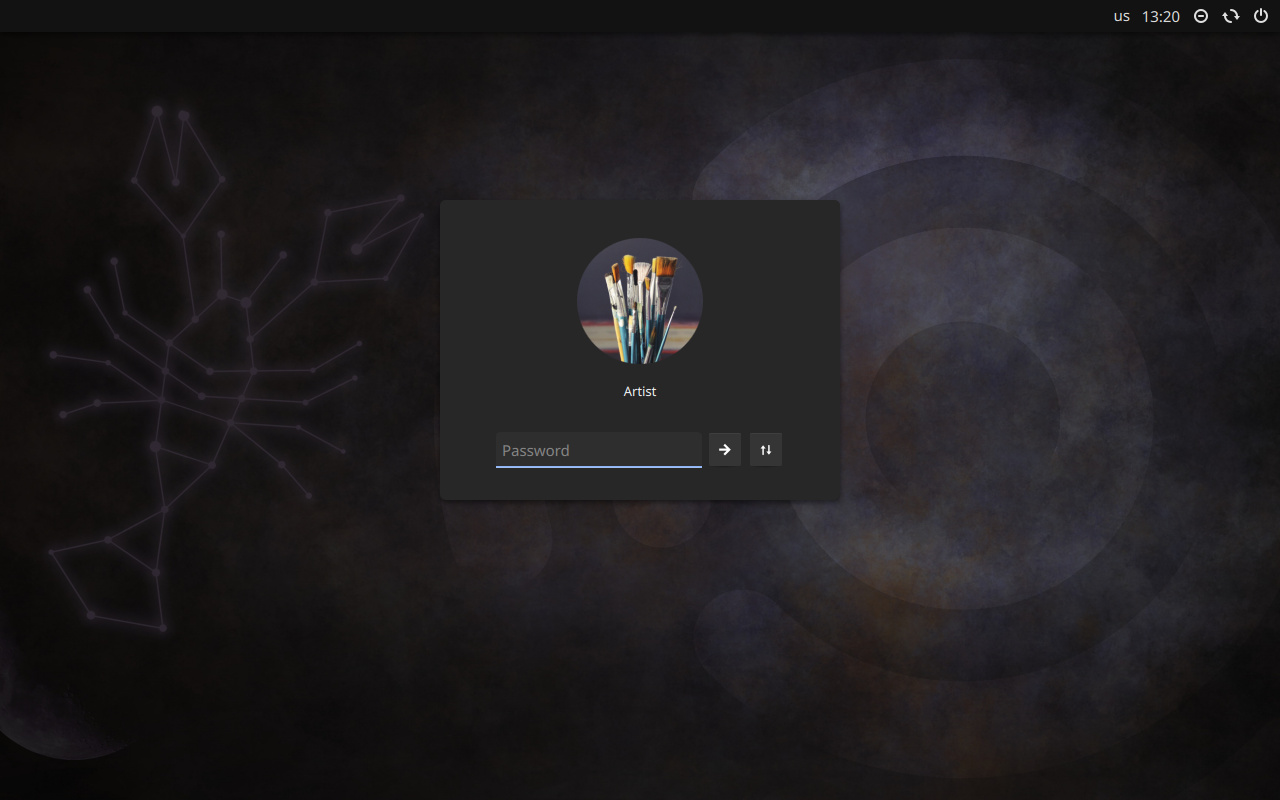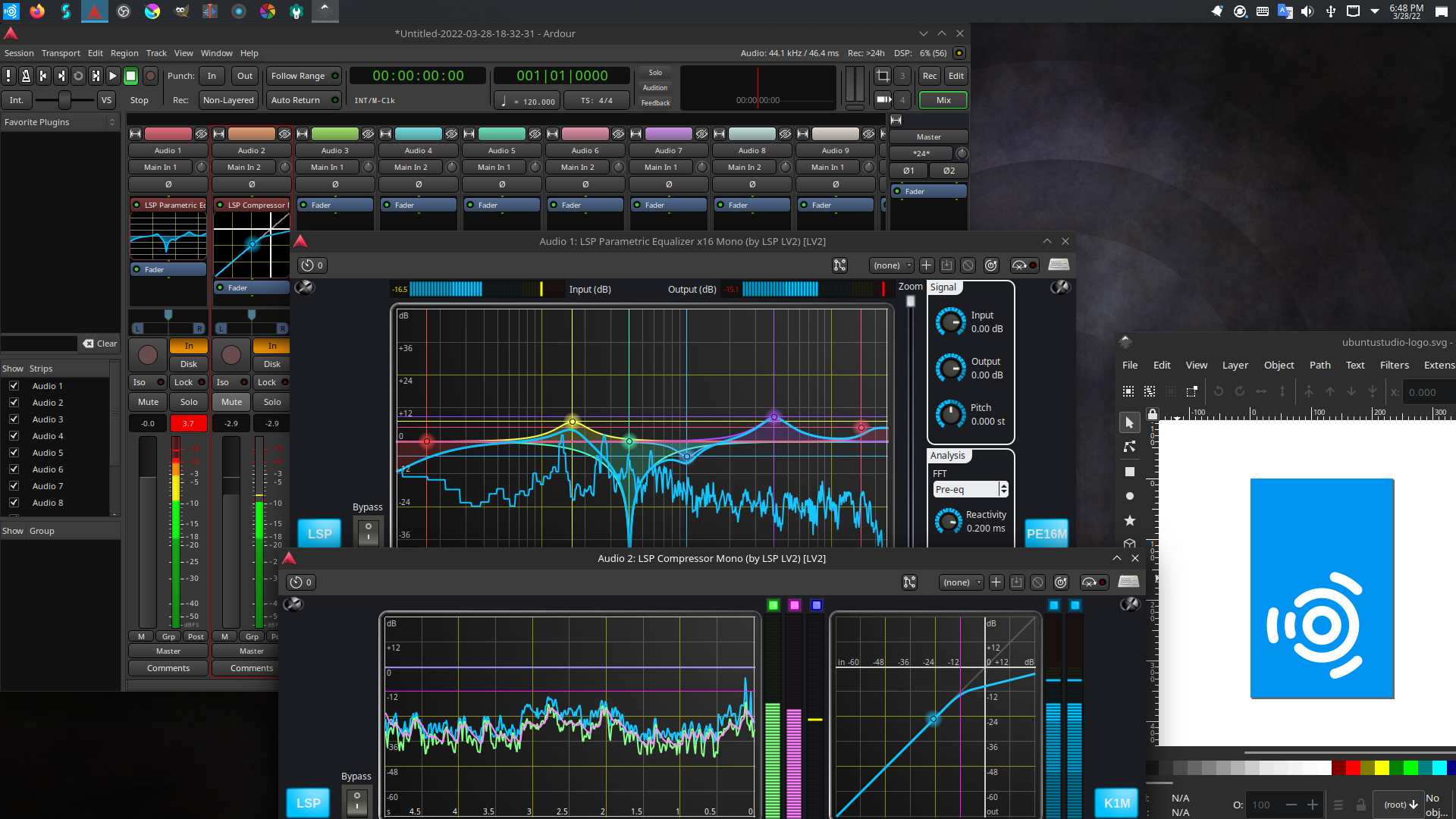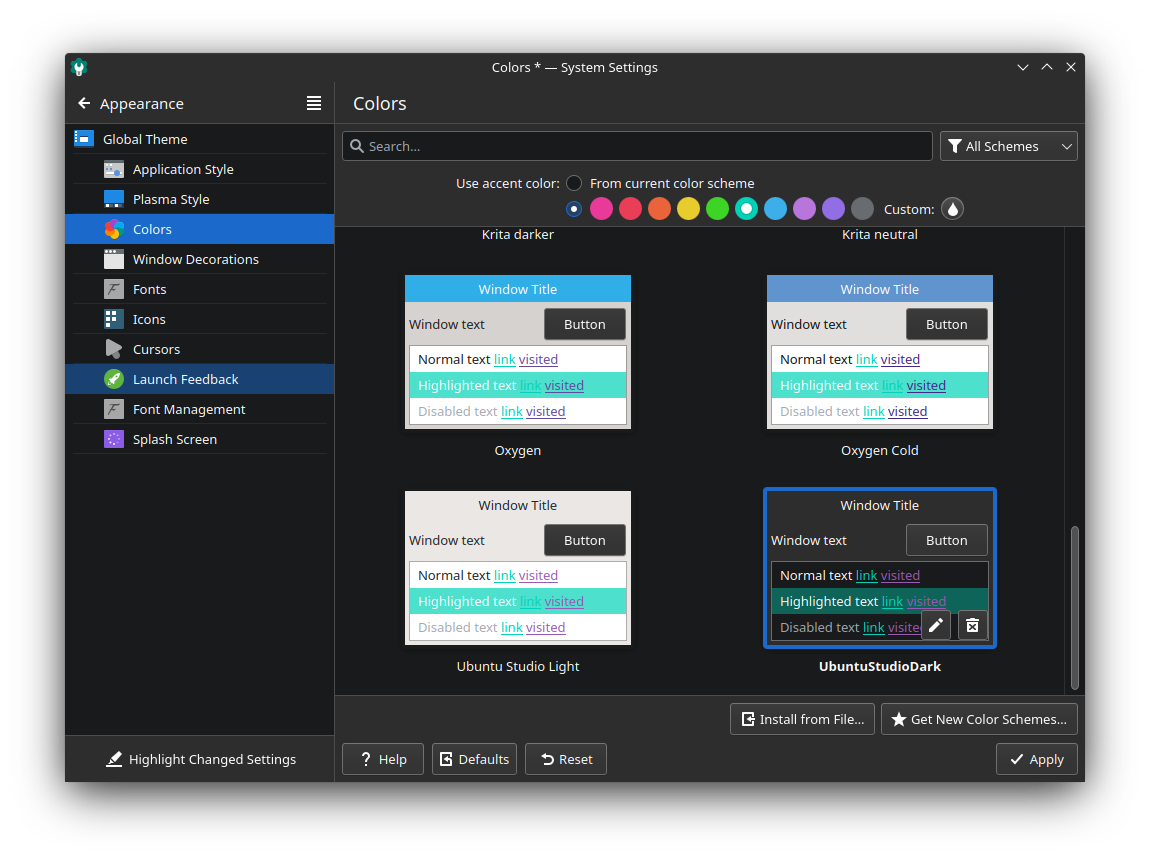The Ubuntu Studio team is pleased to announce the release of Ubuntu Studio 23.10, code-named “Mantic Minotaur”. This marks Ubuntu Studio’s 33rd release. This release is a regular release and as such, it is supported for 9 months (until July 2024).
Since it’s just out, you may experience some issues, so you might want to wait a bit before upgrading. Please see the release notes for a more-complete list of changes and known issues.
You can download Ubuntu Studio 23.10 from our download page.
Upgrading
Instructions for upgrading are included in the release notes.
New This Release
Ubiquity System Installer Returns
In the days where we used Xfce as our default desktop environment, our default system installer was one developed and used by most Ubuntu flavors called Ubiquity. However, when we switched to KDE’s Plasma Desktop as our default desktop environment, we wished to use the Qt version, but we found out it was hardcoded for Kubuntu’s branding. With that, we partnered with Lubuntu, which also uses a Qt-based desktop called LXQt, to use the Qt-based Calamares installer.
Unfortunately, we found that, despite the customization and user experience it provided, it lacked a few features Ubiquity provides:
- A language chooser at boot, which changes the language for the live session and installer alike
- An OEM mode for computer manufacturers
- The ability to install without running the live session
This release, we worked hard to make sure the first time you boot Ubuntu Studio 23.10 is a pleasing one and that everything is themed correctly, including pushing changes to Ubiquity itself so that the GTK version of Ubiquity would work with our default theming as well as fixing a bug that affected other Ubuntu flavors with dark themes.
For the next release, we hope to switch to the same installer Ubuntu Desktop (GNOME) and Ubuntu Budgie are using, which is a graphical frontend for the text-based Subiquity installer used in Ubuntu Server. We believe that unifying under a single codebase makes maintenance easier and creates a higher-quality experience for everyone.
PipeWire Continues to Get Stronger
PipeWire has gained numerous improvements, including fixes for prosumer and professional audio. The JACK compatibility now performs in real-time, and some FireWire features have now been implemented.
We also include a new utility, called the Ubuntu Studio Audio Configuration utility, found in the Ubuntu Studio Information menu. This can be used to configure the default PipeWire Quantum value, Enable or Disable the PipeWire-JACK compatibility layer (handy for using JACK by itself), or switch to the classic PulseAudio-JACK setup that was the default prior to 23.04. Click here for more information about that utility
In the Repositories: QPrompt
QPrompt is a Qt-based teleprompter application now available in the repositories. While a snap version does exist and is installable from Discover, the version in the repositories is more up-to-date. Since Discover does not see the version in the repositories, it needs to be installed from the command line by issuing the following command:
sudo apt install qprompt
Backports PPA is Now Deprecated
As stated in the release announcement of Ubuntu Studio 23.04, that release was the last release in which packages would be backported to the Ubuntu Studio Backports PPA. As of this release, we will no longer be backporting packages from the next release to regular releases such as this release. As such, the backports PPA items have been removed from Ubuntu Studio Installer for this release. This simply means a longer wait for new software and that interval will be six months for regular releases.
In the future, we plan to utilize the official Ubuntu Backports Repository and backporting newer package versions there, except for Ardour Backports when new whole versions are released as they would still be backported to our Ardour Backports PPA. The Ubuntu Backports Repository only supports LTS releases. Therefore, we plan to backport only to 22.04 LTS and, in the future, only 24.04 LTS using the backports repository once it releases.
Furthermore, as of today, backports to the Backports PPA for 23.04 have stopped, and software for 23.04 in that PPA will be deleted when 23.04 goes End-Of-Life (EOL) in January 2024. If you would like newer software and are running 23.04, we encourage you to upgrade when you receive the notification.
Plasma Desktop Backports
Since we share the Desktop Environment with Kubuntu, simply adding the Kubuntu Backports will help you with keeping the desktop environment and its components up to date with the latest versions:
sudo add-apt-repository ppa:kubuntu-ppa/backportssudo apt upgrade
More Updates
There are many more updates not covered here but are mentioned in the Release Notes. We highly recommend reading those release notes so you know what has been updated and know any known issues that you may encounter.
Get Involved!
A wonderful way to contribute is to get involved with the project directly! We’re always looking for new volunteers to help with packaging, documentation, tutorials, user support, and MORE! Check out all the ways you can contribute!
Our project leader, Erich Eickmeyer, is now working on Ubuntu Studio part-time, and is hoping that the users of Ubuntu Studio can give enough to generate a monthly part-time income. Your donations are appreciated! If other distributions can do it, surely we can! See the sidebar for ways to give!
Special Thanks
Huge special thanks for this release go to:
- Eylul Dogruel: Artwork, Graphics Design
- Ross Gammon: Upstream Debian Developer, Testing, Email Support
- Sebastien Ramacher: Upstream Debian Developer
- Dennis Braun: Upstream Debian Maintainer
- Rik Mills: Kubuntu Council Member, help with Plasma desktop
- Len Ovens: Studio Controls
- Mauro Gaspari: Tutorials, Promotion, and Documentation, Testing
- Krytarik Raido: IRC Moderator, Mailing List Moderator
- Erich Eickmeyer: Project Leader, Packaging, Development, Direction, Treasurer
Frequently Asked Questions
Q: Does Ubuntu Studio contain snaps?
A: Yes. Mozilla’s distribution agreement with Canonical changed about a year ago, and Ubuntu was forced to no longer distribute Firefox in a native .deb package. We have found that, after numerous improvements, Firefox now performs just as well as the native .deb package did.
Additionally, FreeShow is an Electron-based application. Electron-based applications cannot be packaged in the Ubuntu repositories in that they cannot be packaged in a traditional Debian source package. While such apps do have a build system to create a .deb binary package, it circumvents the source package build system which is required when packaging for Ubuntu. However, Electron apps also have a facility for creating snaps, which can be uploaded to the snap store. Therefore, for FreeShow to be included in Ubuntu Studio, it had to be packaged as a snap.
Q: Will you ever make an ISO image with {my favorite desktop environment}?
A: To do so would require creating an entirely new flavor of Ubuntu, which would require going through the Official Ubuntu Flavor application process. Since we’re completely volunteer-run, we don’t have the time or resources to do this. Instead, we recommend you download the official flavor for the desktop environment of your choice and use Ubuntu Studio Installer to get Ubuntu Studio. Please note that this process does not convert that flavor to Ubuntu Studio but adds its tools, features, and benefits to the existing flavor installation.
Q: What if I don’t want all these packages installed on my machine?
A: Simply use the Ubuntu Studio Installer to remove the features of Ubuntu Studio you don’t want or need by unchecking the boxes!





